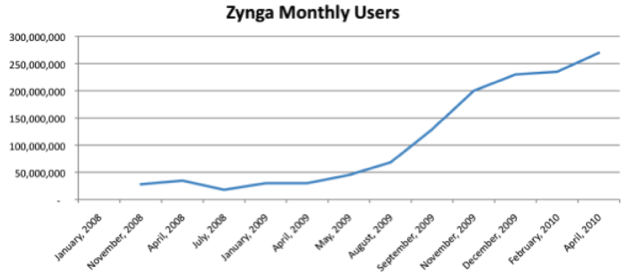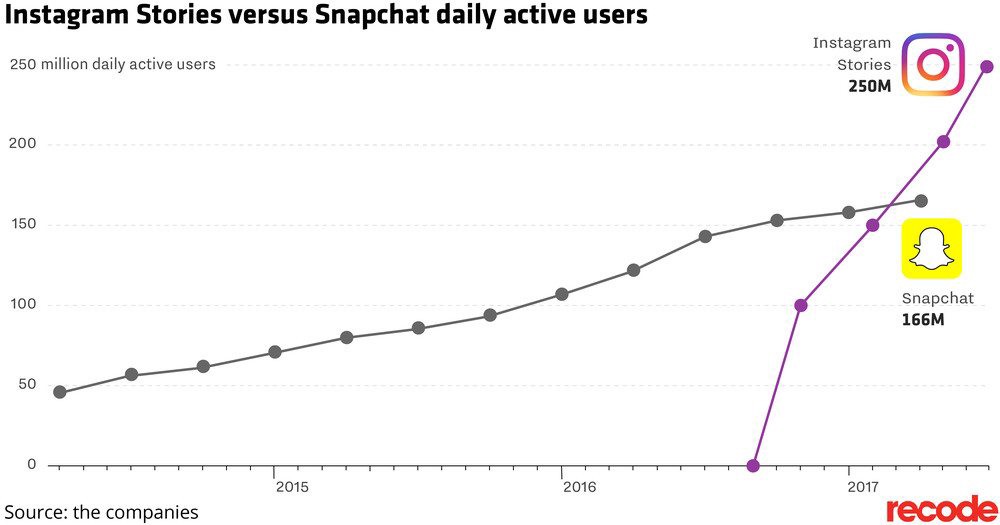Facebook’s Mantra: “Join us or we will copy you” - Platforms, Marketplaces and Playing with Fires

The internet has changed.
The world of the walled garden is here.
This creates interesting dynamics, problems and opportunities for startups. It is exciting, and terrifying. Let me explain.
My background is ecommerce and Amazon. In 2015 I invested ~$8k in product and managed to scale my “startup” to a 7 figure exit at the end of year one.
If you are scratching your heads, you should be. Building and flipping a business in a year is dumb. But my goal was just to make some quick cash selling products online, primarily via Amazon.
It worked. And through the process I built a top 3 Amazon podcast, met hundreds of FBAers (Amazon sellers), and helped 1000s build businesses on Amazon.
As I grew, I started to wisen up. What started as a personal challenge suddenly become scary. Let me explain.
Platforms are like distribution on steroids
Platforms and marketplaces like Amazon, Android and the App Store are unparalleled acquisition engines. Never before in the history of mankind could companies, let alone startups access this scale and breadth of consumer.
The world is literally there for taking.
Starting a hardware startup? Kickstarter can help.
Building an ecommerce app? Shopify’s add-on store speeds its up.
Not a developer but got a great idea? There are even UI and chatbot based platforms for creating apps.
The power and resources at founders’ fingertips are unprecedented.
And so is the speed at which startups scale. Zynga.org was a rocketship, riding on Facebook’s coattails. The social network grew and viralized distribution, allowing Marc Pincus gaming company to ~10x in under two years. 260M+ MAUs (monthly active users). That is unheard of in gaming, at least it was.
In the world of platforms, this is starting to become normalized. But there is a huge problem.
Platforms are great, until they aren’t
"Zynga, more than any other company, took advantage and built an incredible gaming business directly through the Facebook Graph API. Over time, Facebook began making changes to how developers could interact with specific data and just as quickly as Zynga grew, they fell — and fell far. There are many companies, big and small, that have suffered a similar demise. "— Ben Schippers: TechCrunch

And I knew of sellers who shutdown overnight, with no warning. Amazon’s a double-edged sword. All platforms and marketplaces are. When it is good, it is great. But playing on some else’s playground often ends in tears.
There are two ways this happens:
rules/algorithm changes
copy/paste competitors
Both kill startups.
The age of the algorithm
The first and most obvious example would be Google. Google indexed the world’s information and built the leading search browser, with 77–80% of worldwide searches. That makes Google powerful. SEO and organic search make and break businesses. And throughout their history, Google has done just that.
The infamous Panda updates broke the backs of many businesses. Imagine adding a wall around a local mall. The number of visitors drops drastically. Businesses collapse and the mall defaults on the mortgage.
Those are the metaphorical examples of a small algorithm change.
And they happen, even with the best of intentions. Google wanted to clean up search. They saw marketers manipulating results, creating backlinks and gaming the system to get more visitors.
So Google fights back, adding penalties for overly specific and frequent backlinks. These hurt many sites, not just the grey and black hat players. And entrepreneurs (and mom and pop sites) had NO warning and NO recourse.
Even Ebay lost 80% of it is organic search thanks to Google’s Panda 4.0 updates. This was 2014. This can happen to anyone.
But blacklisting is even worse
While losing ground in search is bad, disappearing entirely is game over. If you bet your business on a platform or marketplace, the powers that be can kick you off anytime, even accidentally.
Now you would think issues like these could be sorted out. Reasonable discussions usually work, right?
The problem with platforms is that most are too big to care.
Amazon could ban a $10M seller, and that is only 0.007% of its overall sales. That is chump change for Bezos. The same is true of Apple, Google, or Facebook. What % of their profit comes from your product?
When you are dealing with mega corporations, they don’t care and it is nearly impossible to get actual support — it is all automated or outsourced.
(Pro Tip: If you do find yourself in this situation, call customer service, not the business lines. Most platforms and marketplaces care WAY more about customer than sellers. I have pretended to be a customer just to get the right people on the phone — works much better.)
Control + V
Startups that threaten incumbents get punished. Facebook is the worst offender.
"It was common knowledge, even back then, that Facebook would just approach a company and say something to the effect of, ‘Join us or we will copy you,’" — Naveen Selvadurai — Foursquare Co-Founder
And look at Instagram ripping Snapchat Stories, pixel for pixel. Zuckerberg offered to buy Snap for $3B. Evan Spiegel said no. Anyone looked at Snap’s growth charts lately?

And the examples go on and on and on.
Platforms are walled gardens of data. When building your product to leverage a platform, you are often handing away the most valuable part — the data. Facebook’s OpenGraph API let’s Facebook track features and user behavior. They see what works and follow suit.
And Amazon just uses 3rd party sellers to test products before creating Amazon Basics versions of the best sellers (for more on how Amazon is killing ecommerce, see this post).
Remember, no one has your back. As a startup, it is your job to realize most “partners” are looking to screw you. They use you and lose you once your value is dried up.
[LIKE THIS ARTICLE SO FAR? THEN YOU’LL REALLY WANT TO SIGN UP FOR MY NEWSLETTER OVER HERE — AND GET SOME FREE BONUSES!] - http://thesyndicate.vc/subscribe
Failure to plan is planning to fail
Keep this in mind:
Who are your serving?
How are you reaching them?
What are the choke points in your business?
Do you have any leverage?
Moats are the most important part of any business. Any startup without a moat is ultimately overrun. Without defensibility, you cannot protect yourself and build your business.
And there are many ways to build sustainable moats — the most common being: product, brand, IP, data, and network effects. Each add buffers to competition. But most do not work for the majority of startups. (For more on the 5 types of network effects and how to hack them, see this post.)
But platforms are powerful launching pads
The point of this article isn’t to discourage startups. It isn’t to avoid platforms either. The goal is to understand the game, their game and your end game.
How do you take advantage of platforms, and not the other way around?
There are lots of strategies — most involve stealing/acquiring customers from a platform.
An example: With Amazon there are hundreds of millions of buyers. You can build a massive business only ever serving Amazon. It is inherently risky though — all your eggs are in one basket.
And as an Amazon seller, I was constantly looking to bring buyers back to MY SITE, not Amazon. I built a Shopify store, added couponed inserts into product packaging and hoped buyers would bite. Some did.
(NOTE: This was TOTALLY against Amazon’s rules. I gambled and got lucky. It doesn’t always go so well. But with regard to risk, what choice did I have?)
And Amazon is a great way to get sales quickly. But I liken it to fast food — great in the short term but with long term consequences.
Join Newsletter - The Syndicate
Like this article so far? Then you’ll want to sign up for my newsletter (plus you’ll get some free bonuses!)
http://thesyndicate.vc/subscribe
Building backup plans
Entrepreneurs need to think this through. What is your backup? How are you building towards that today?
For us it was Shopify and email. Acquiring emails let us remarket and upsell customers, increasing LTV (lifetime value of customer).
For you it will be different. For apps, push notifications are great. Proprietary data is even better. With content and social, it is all about emails, not followers.
Every medium has its metric.
The question to ask: if your channel disappeared overnight, what do you do? The answer needs to be acted on now. Diversification and growth is the name of the game.
When investors see omni-channel startups, red flags go up. One small change and everything is gone. For inherently risky startup investments, that is usually a non-starter.
There are so many things that can and will go wrong with a startup. Raising money is hard. Building a team is hard. Shipping and selling product is hard. It is a hard hard road. And fundraising is a constant risk-reward game. Every round is less risky, with success is becoming more and more likely — reflected in increasing valuations.
Prioritizing acquisition channels
The core problem comes down to acquiring customers. As a business, how do you do it? And better yet, where should you focus?
There are so many ways to acquire customers, each with strengths and weaknesses. And as an early stage startup, you cannot and should not try do everything.
The best strategy I have seen is a tiered approach. Focus on one channel, perfect that channel and ignore everything else. Once paid ads, SEO or XYZ platform is starting to drive real growth, scale that up.
As the team grows (typically with every round of funding) the focus should shift to diversification. Keep doing what is working but begin exploring new channels. Stick with what you know here. If you have completely exhausted FB ads, look at Google, Pinterest and Instagram ads. Many of the same skills will apply, allowing you to leverage learnings, breakeven and scale faster.
The same is true for social. Built a large, responsive Pinterest following? It is probably pretty doable to replicate on Instagram. See superb results blogging? Try converting top posts to standalone Youtube videos, infographics or SlideShare presentations — all of these amplify your assets.
I for one listed products on Ebay, Walmart and Jet.com to reduce dependence on Amazon. And to some extent it worked. At our peak, 15% of sales came via off Amazon channels.
At the same time the strategy was flawed. Rather than slowly expanding and optimizing for a channel, I sprayed and prayed. We got our products on all marketplaces quickly but didn’t have the resources or expertise to maximize the channel.
New acquisition techniques
In many situations, tangential expansion doesn’t apply. Once you have exhausted your skill set and channel, look to expand into inverse acquisition channels — ie channels with differing time and CAC requirements. For example: paid ads are almost expensive and instantaneous whereas SEO is basically free but incredibly slow.
If you can balance paid and free acquisition models, CAC slowly decreases — and the business becomes more sustainable.
And whereas paid traffic can be manufactured overnight, organic results take time. Layering these approaches allows the best of both worlds: early acquisition and testing while still building long term sustainability.
(Here are more acquisition strategies with in-depth looks at strengths and weaknesses of each, if you are interested.)
Back to the platforms
Building on platforms is like playing with fire. Startups however have to live off risk. Cash is king and companies ONLY die when they run out of money.
To both build towards profitability and hit metrics needed for follow on funding, startups should seriously consider leveraging platforms. Marketplaces make customers accessible by aggregating demand. They win as markets grow and can help startups take off with little rocket fuel.
But with any greedy, unpredictable partner, startups should always watch their back. This dance is known as The Art of War. Founders that play it well win big, but the majority fail. Between increased competition, external pressures and the threat of extinction, marketplaces should never be the end game.
Startups need sustainable, proprietary ways to acquire and retain customers. And it almost always comes back to business moats.
But we have danced around the topic enough. It is time to share your thoughts on the article and the future of platforms and marketplaces. If you were a startup founder, would you touch Facebook, Amazon, Apple, or Google? Any, All? Why or why not?
What do you think, is the risk worth the reward?
Learned something? Click the 👏 to say “thanks!” and help others find this article.
Like this? Subscribe today to never miss a thing: http://thesyndicate.vc/subscribe